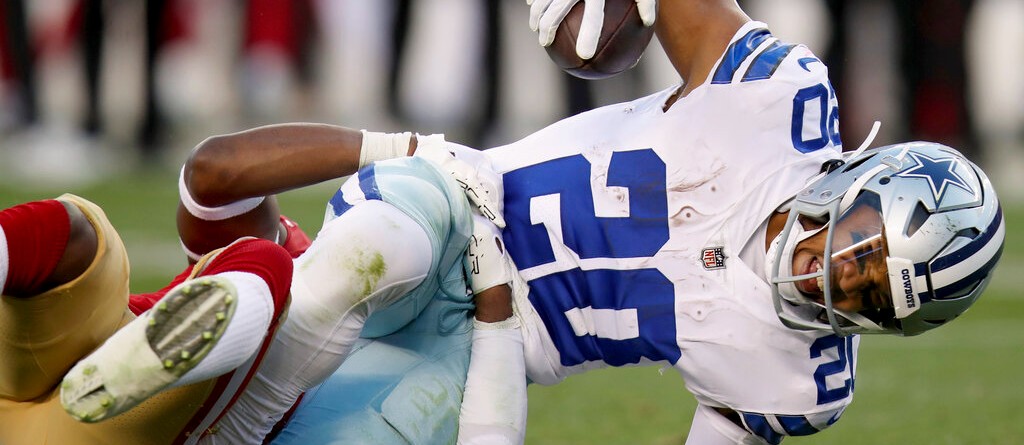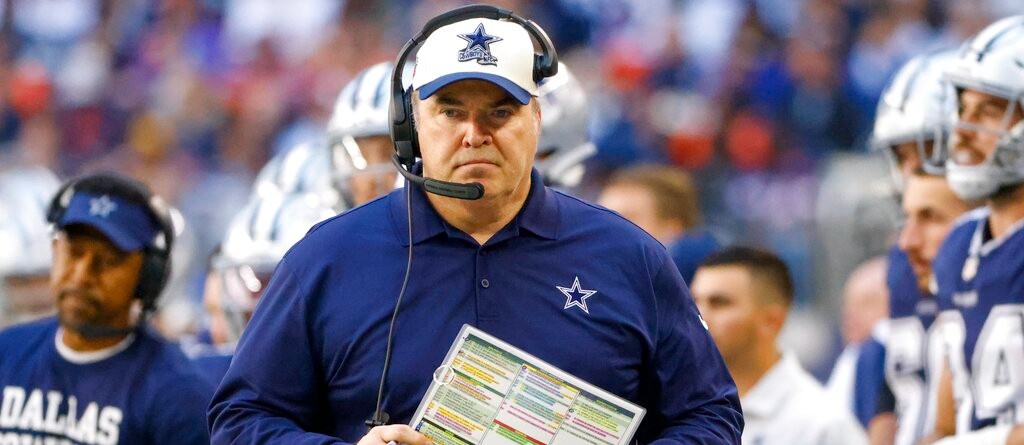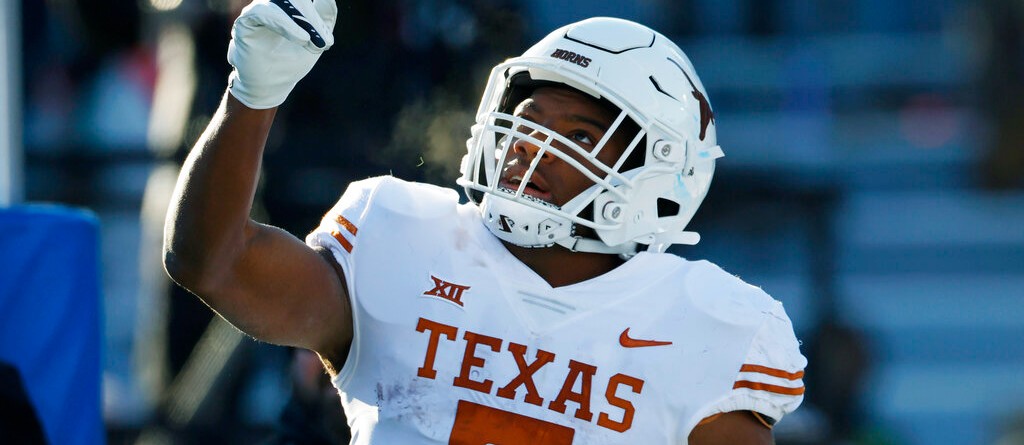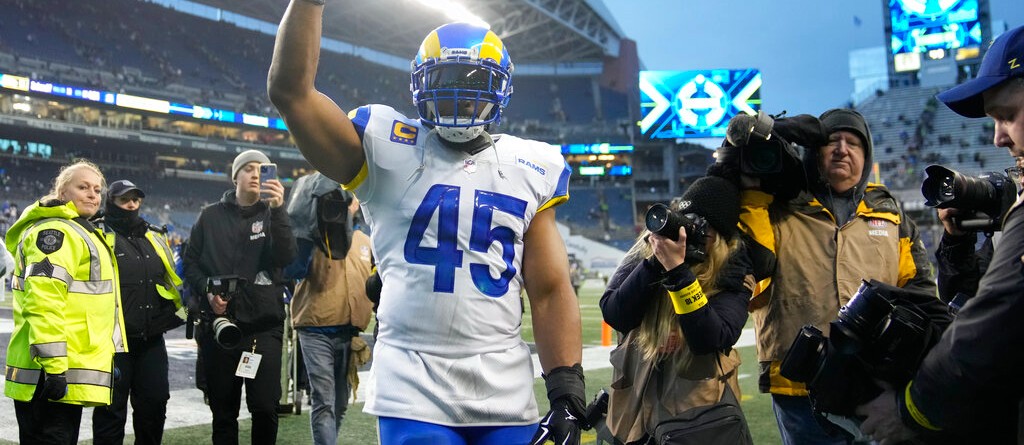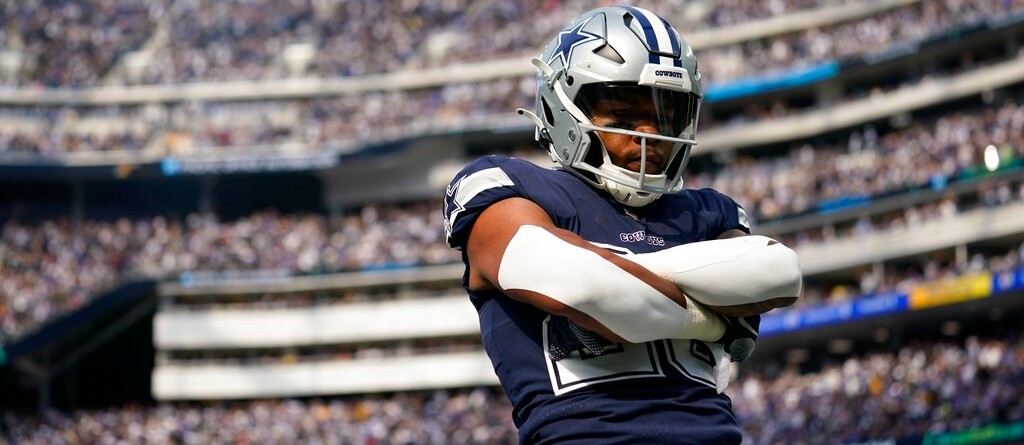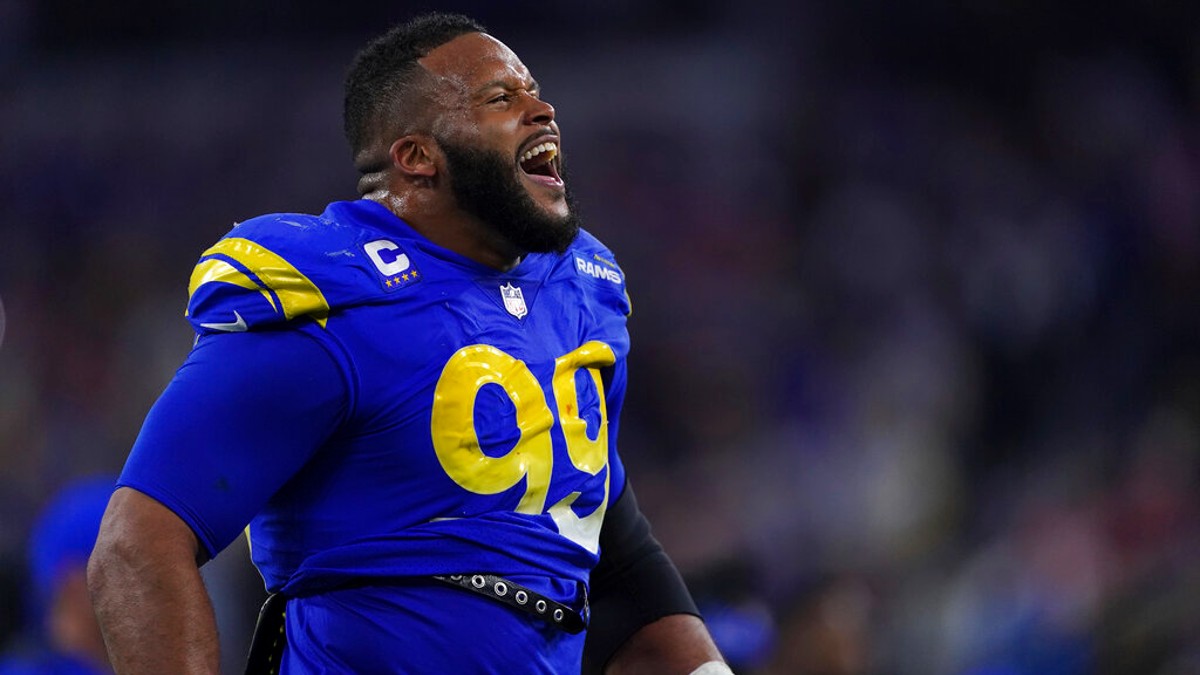It’s not a stretch to say the Dallas Cowboys easily could’ve – and perhaps should’ve – beaten the San Francisco 49ers Sunday night. The agonizing 19-12 loss should have fans wondering what could’ve been had Dallas gotten better quarterback play.
You can’t blame the Cowboys defense, while held a 49ers offense – a unit that was deemed to be practically unstoppable – to just 312 yards, one touchdown and just 19 points. You can’t blame Brett Maher. And even Mike McCarthy and the Cowboys coaching staff can’t shoulder much blame.
The problem Sunday night was clear and obvious: the Cowboys offense didn’t execute well enough, especially after Tony Pollard exited the game with what turned out to be a broken fibula.
Pollard was injured with 1:36 remaining in the second quarter. In four drives with Pollard in the game, Dallas put up 136 yards, scored its lone touchdown and had two drives end in interceptions, including one at San Fran’s 18-yard line. In the ensuing six drives without Pollard, the Cowboys racked up just 141 yards and kicked two field goals.
Life without Pollard = ugly
Dallas’ struggles without Pollard might have been a sign of things to come, as Sunday’s loss might’ve been the free-agent running back’s last game wearing the star. And life without Pollard could be rough.
Pollard is a legitimate playmaker out of the backfield. He has the burst, speed and pass-catching ability that Ezekiel Elliott sorely lacks at this stage in his career. Zeke’s days of shouldering a heavy workload are over, and the Dallas ground game will sorely miss Pollard’s explosiveness if he walks. The fact Pollard racked up more than 1,300 yards on fewer than 250 touches speaks to his talent and his potential as the featured back.
If Pollard leaves via free agency, Dallas’ offense will depend even more on Prescott. And that’s probably not a good thing.
Let’s talk about Dak
Prescott is a fine regular-season quarterback. He’s practically a lock to throw for 4,000 passing yards and 30 touchdowns if he plays a full season. And those numbers are nothing to sneeze at.
But when it matters most, Prescott hasn’t risen to the levels of the game’s greats. He is farther from the Patrick Mahomes, Josh Allen, Joe Burrow tier, and has receded closer to the solid, but unspectacular tier featuring the likes of Kirk Cousins and Derek Carr.
Look no further than Sunday’s loss to the 49ers as the clearest example. Prescott simply wasn’t locked in. He had time, he had open men. He just missed them far too often. What’s crazier is the Cowboys could’ve won with Prescott’s pedestrian 207 yards and a touchdown. The problem is Dallas couldn’t overcome his mistakes.
The 49ers scored six points off of Prescott’s two interceptions. His second miscue, thrown at the San Francisco 18, likely took at least three points off the board for his own team. That’s a nine-point swing in what was a one-score game the entire night.
A pattern?
And unfortunately for Prescott, this wasn’t a fluke. Dak is now 2-4 in the playoffs. In those four losses, Prescott has failed to top 266 yards, and he’s thrown at least one interception in three of those postseason defeats. For as good as he was just a week ago against Tampa Bay, he was equally as bad in the Bay Area. And it’s awfully hard to win a Super Bowl with such erratic play under center.
Perhaps the Dallas brass recognizes how important Pollard is to the offense. Perhaps they maneuver some money and make some tough cuts in an attempt to keep him. But part of the reason Pollard isn’t a lock to remain a Cowboy is because of Prescott’s $49 million cap hit in 2023.
When you’re the quarterback for the Dallas Cowboys making the second-highest cap hit among quarterbacks in 2023, you’ve got to be better. Mahomes is going to win MVP despite losing Tyreek Hill. Burrow might make back-to-back Super Bowls despite porous protection. Allen continues to lead a Buffalo offense that has no semblance of a running game, besides him.
The great ones find a way to make it work. And the excuses are running out for Prescott. If he wants to be viewed as an elite quarterback, he eventually has to overcome the sacrifices that are made to accommodate a franchise quarterback’s contract.
